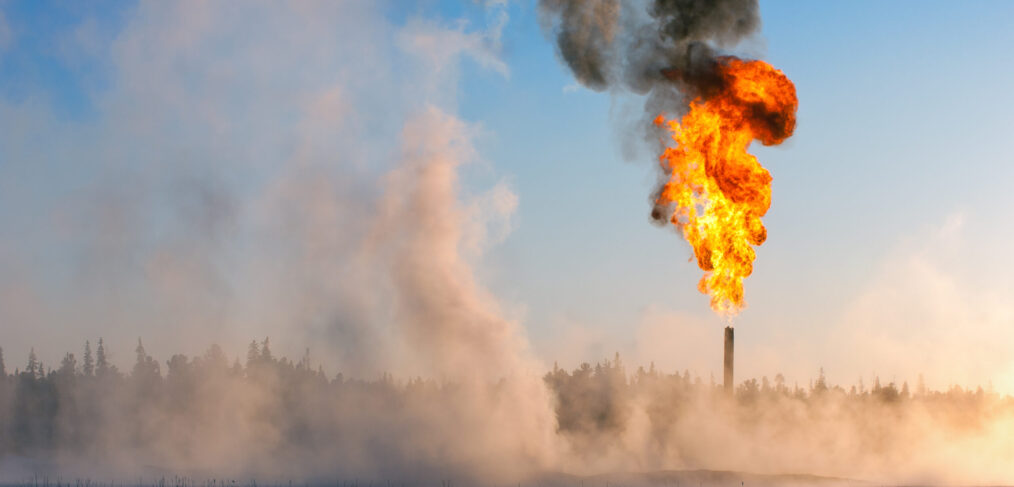
Win-win for climate protection and energy sovereignty: the competent committees in the European Parliament vote for the extension of the EU Methane Regulation
The two competent committees in the European Parliament have just adopted a proposal for Parliament’s position in the negotiations with the Council and Commission on the new EU Methane Regulation with a large majority. MEPs on the Committee on Industry, Research and Energy (ITRE) together with the Committee on the Environment, Public Health and Food Safety (ENVI) voted to extend the draft regulation presented by the European Commission to limit methane emissions in the energy sector (detailed background paper here ).
After today’s vote, the European Parliament will debate the new EU Methane Regulation in Strasbourg on May 8th and vote on Parliament’s position for the trilogue negotiations in the Strasbourg plenary session on May 9th or 10th.
Green MEP Jutta Paulus, chief negotiator for the Industry Committee, comments:
“Today’s vote by the competent committees in the European Parliament is a broad commitment to more climate protection and energy sovereignty in Europe. Without ambitious measures to reduce methane emissions, Europe will miss its climate target and valuable energy will continue to go to waste.
We Members of the European Parliament call for ambitious and stringent methane reduction measures. Specifically in the energy sector, three quarters of methane emissions can be avoided by simple measures and without large investments. Routine venting and flaring of methane must be banned, leaks from pipelines or valves must be repaired quickly. But Europe imports more than 80 percent of the fossil fuels it burns. The extension of the Methane Regulation to energy imports is therefore essential for us Members of Parliament, because much of the methane leaks outside of the EU Member States”.
Short Background:
- • According to the most recent synthesis report by the Intergovernmental Panel on Climate Change (IPCC), the goal of limiting global warming to 1.5 degrees can only be achieved with measures to reduce methane. Halving methane emissions by 2030 can reduce the global average temperature rise by 0.3 degrees Celsius.
- • Imports: The parliamentary proposal extends the measures proposed by the Commission to the entire supply chain of fossil imports. The EU imports more than 4/5 of its gas and oil needs and 2/5 of its coal needs. Without the extension to imports, the EU Methane Regulation is ineffective. If the EU Methane Regulation were also applied to imports into the EU, this would reduce global methane emissions by 400 million tonnes of CO2 equivalents annually, which is equivalent to two thirds of Germany’s annual emissions.
- • Ban on Methane Venting and Flaring: Routine venting and flaring will be prohibited. Parliament’s position strengthens the Commission’s proposal and calls for a 99% efficiency target. Leaks must be found, reported and closed. The role model is Norway, which, due to methane legislation and taxation, has a methane intensity of its production of just 0.02 percent (EU average: 0.2 percent).
- • Methane reduction target: Parliament calls on the Commission to present a proposal for a clear methane reduction target for all relevant sectors by 2025.
- • Coal: Methane emissions from coalmines are subject to a maximum of 5 tons of methane emissions per 1000 tons of coal production from 2027 and a maximum of 3 tons from 2031. This gives Poland, which is historically and socially in a more difficult starting position, more time to implement. Coking coal, which has just been classified as a “critical raw material” by the EU Commission because of its importance for steel production, is initially left out. Parliament calls on the Commission to present a delegated act on coking coal
- • Abandoned and Abandoned Coal Mines: Member States must record abandoned mines and adopt a methane reduction schedule within three years.
- • Extension to the petrochemical sector: In addition to the gas, coal and oil sectors, Parliament is also calling for petrochemicals to be included in the EU methane regulation. Reason: essentially the same technologies and devices are used in the chemical industry as in the oil and gas industry. With the decline in the use of oil and gas as an energy source, the share of petrochemicals in the consumption of fossil fuels will increase.
